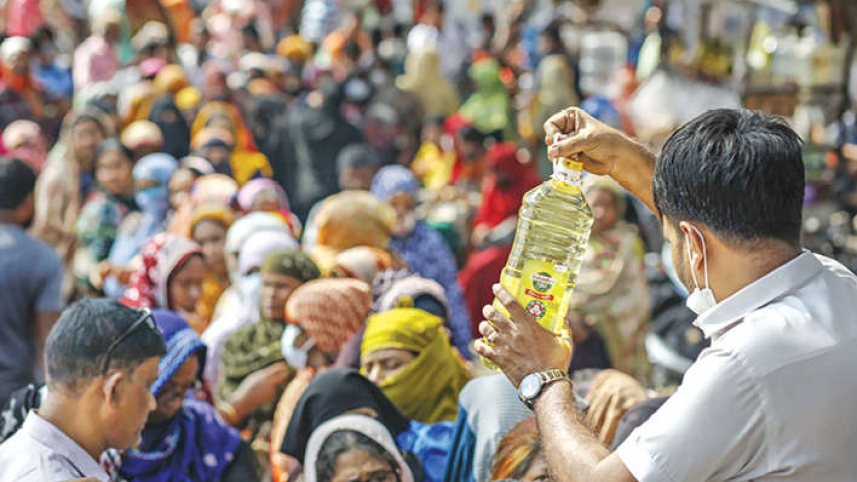Address the supply shortage at OMS selling points

With the prices of essential food items going out of reach of the low- and mid-income people, the queues for subsidised food from the government's OMS selling points are getting longer than ever. People are struggling to buy daily necessities with their limited income as the prices of rice, soybean oil, lentil, sugar, flour and other essentials continue to soar in the local market. Previously, it was mainly people from low-income groups who were buying daily necessities from the OMS selling points and TCB trucks. Now, even those from the low-mid income and middle-income groups are queuing up at these points, according to our report.
During the past few months, the prices of most daily essentials have skyrocketed, forcing many middle- and low-income people across the country to make hard choices that adversely affect their standard of living. It has almost become impossible for these people to have three proper meals a day. Finding no other alternatives, people are standing in long queues for subsidised food. But sadly, many are returning empty-handed because of the shortage in supply. Our report has mentioned a pregnant woman from the capital's Kazipara who went to buy food from the TCB trucks for the third time, failing to buy anything in her first two attempts.
Apparently, there are some systemic flaws in the government's OMS selling system, as the authorities cannot provide the essentials to people based on their economic vulnerability. Oftentimes, those at the end of the queues do not find anything to buy. The mismanagement and manipulation at different OMS selling points are rising with more and more people queueing up for food at subsidised prices.
Against this backdrop, the government must take emergency measures to address the issue. Many consumers and consumer rights activists have suggested that the government reintroduce the ration card system so that those who are most vulnerable can get the government's support all year round. Introducing ration cards for the poor will also stop the malpractice of buying more than once at a time from the OMS points or TCB trucks. Through this system, the authorities would also be able to maintain discipline at the selling points. The Consumers Association of Bangladesh had also suggested this to the government in the past.
The government should also consider expanding its OMS programmes to increase the number of poor people under its coverage. It should also consider providing cash support to the vulnerable sections of the population to see them through these tough times.



 For all latest news, follow The Daily Star's Google News channel.
For all latest news, follow The Daily Star's Google News channel.
Comments